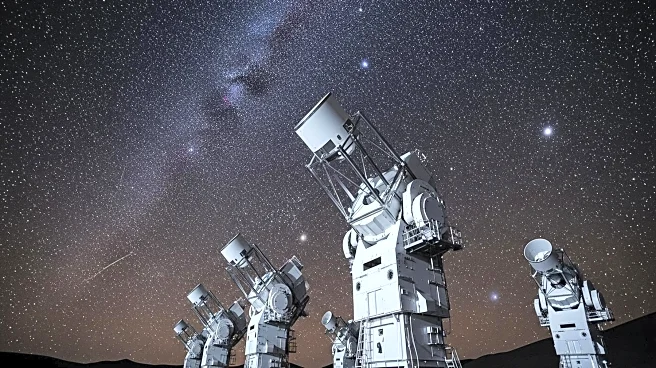What's Happening?
The Atacama Desert in Chile, known for its dry air and minimal light pollution, hosts some of the world's most advanced telescopes. A recent long-exposure image captured from Cerro Pachón showcases the activity around Cerro Tololo, where nearly 40 telescopes are located. These telescopes are part of the US National Science Foundation's NOIRLab, which manages observatories in both hemispheres. The image highlights the collaboration between facilities in the region, advancing astronomical research by observing near-Earth objects, distant galaxies, and dark matter.
Why It's Important?
The Atacama Desert's unique conditions make it an ideal location for astronomical observations, contributing significantly to global research efforts. The telescopes in this region play a crucial role in expanding our understanding of the universe, from tracking near-Earth objects to studying distant galaxies. The collaboration between observatories enhances the quality and scope of data collected, supporting breakthroughs in astronomy and potentially leading to new discoveries about the cosmos.









